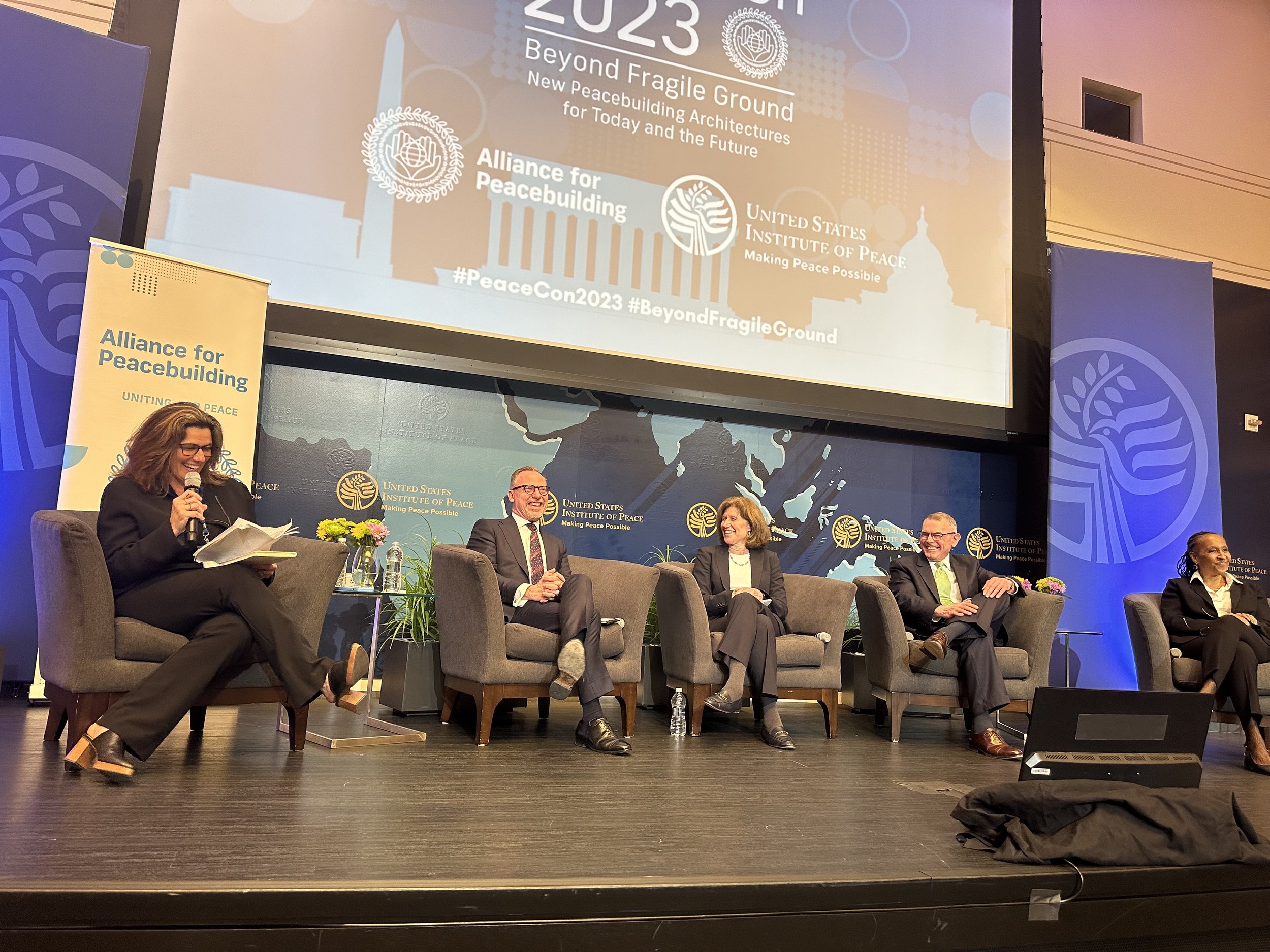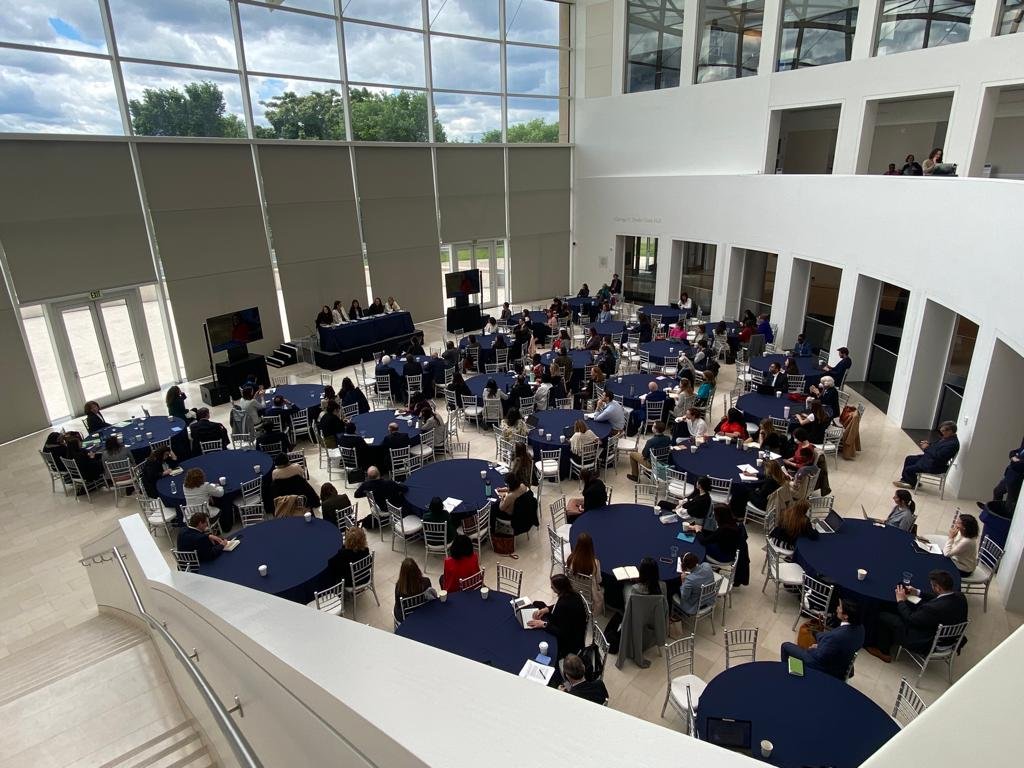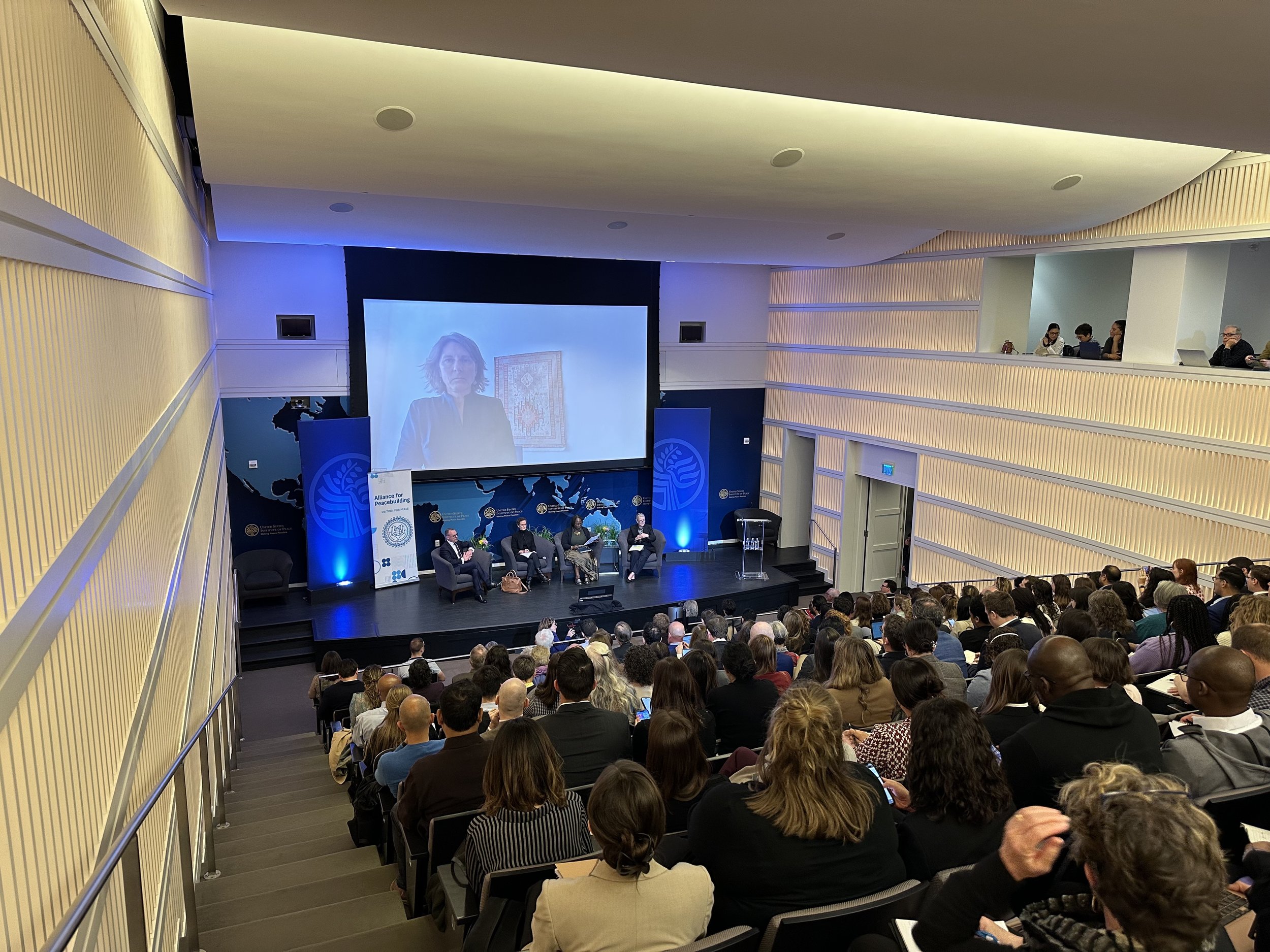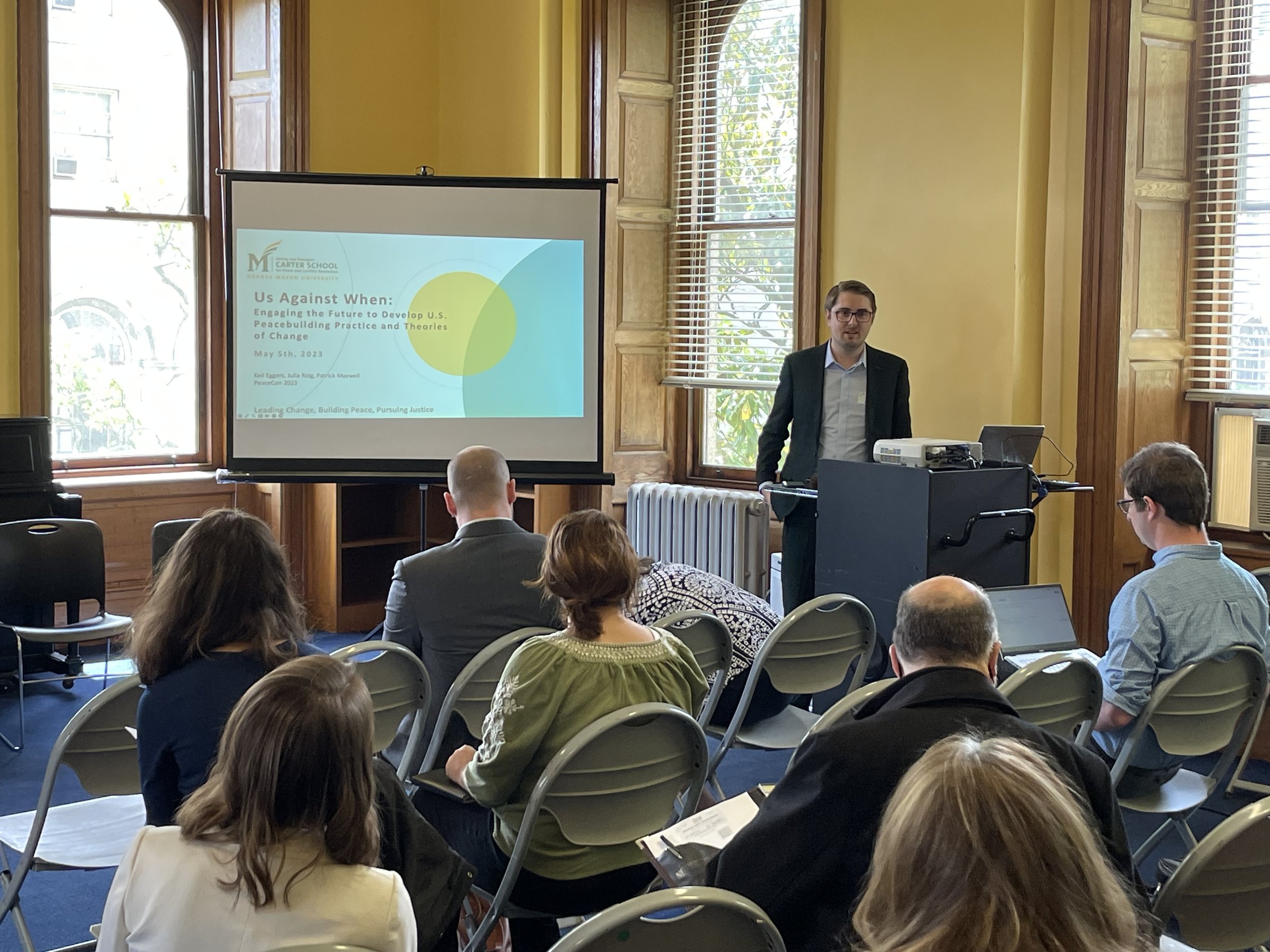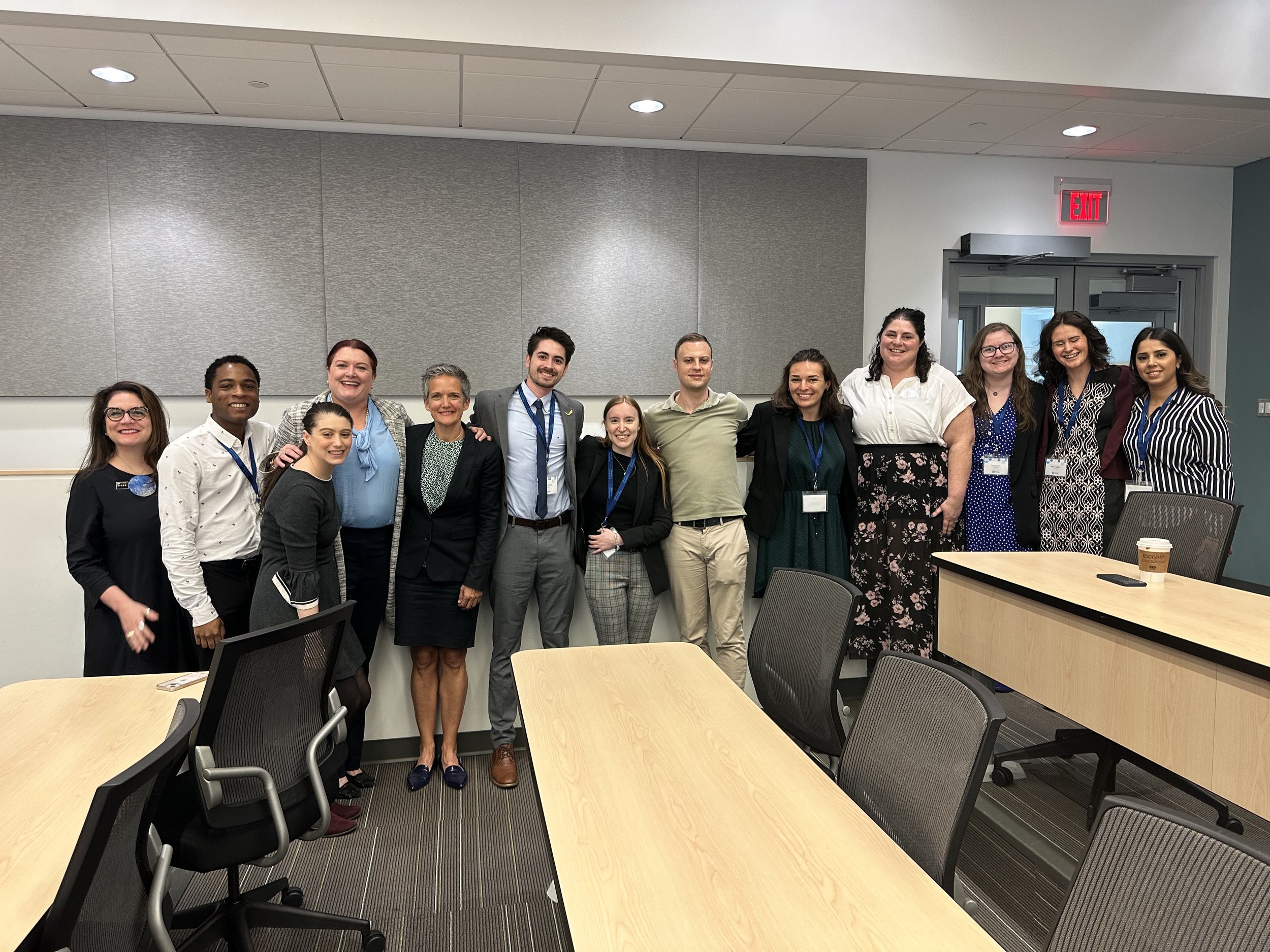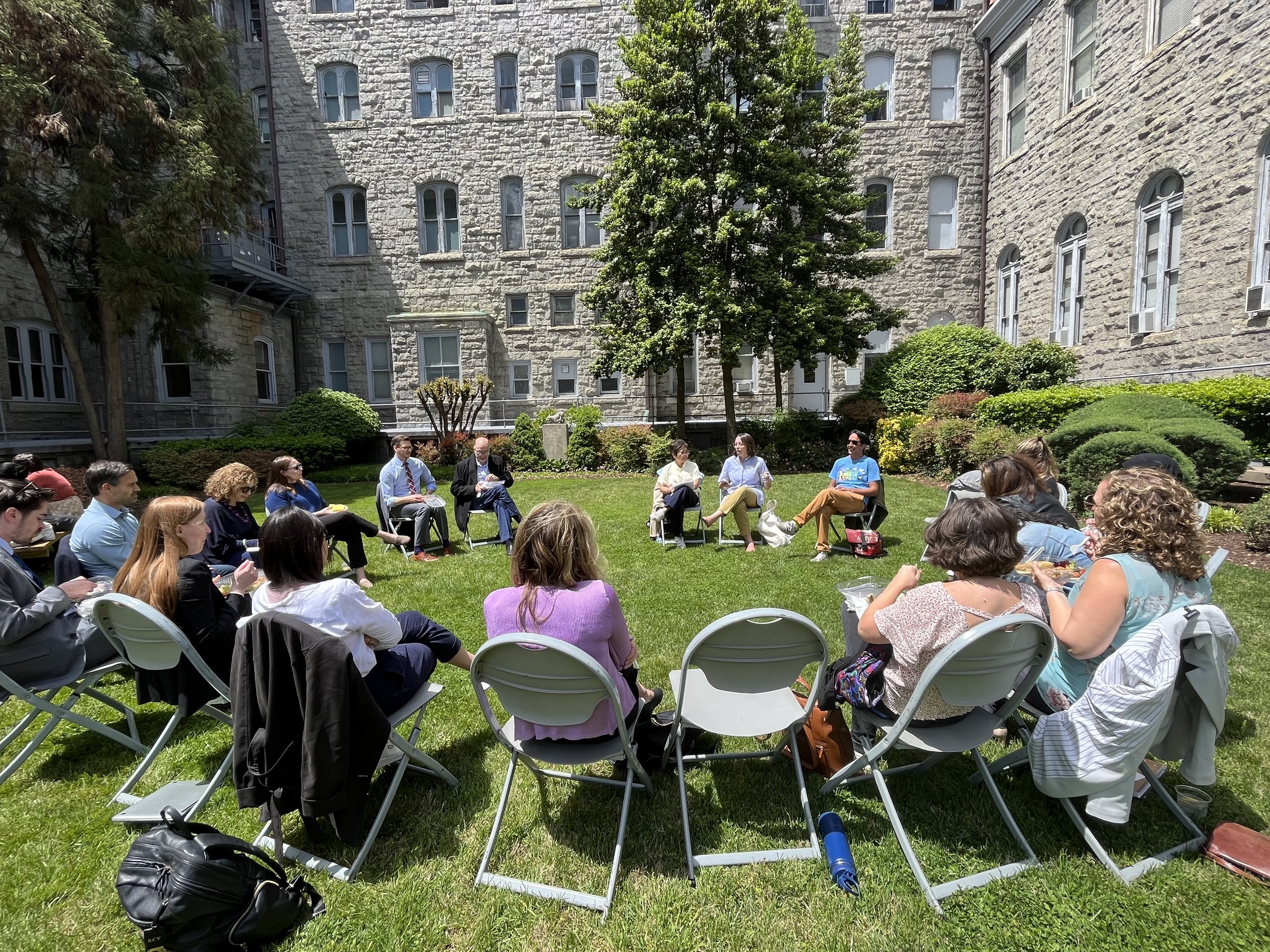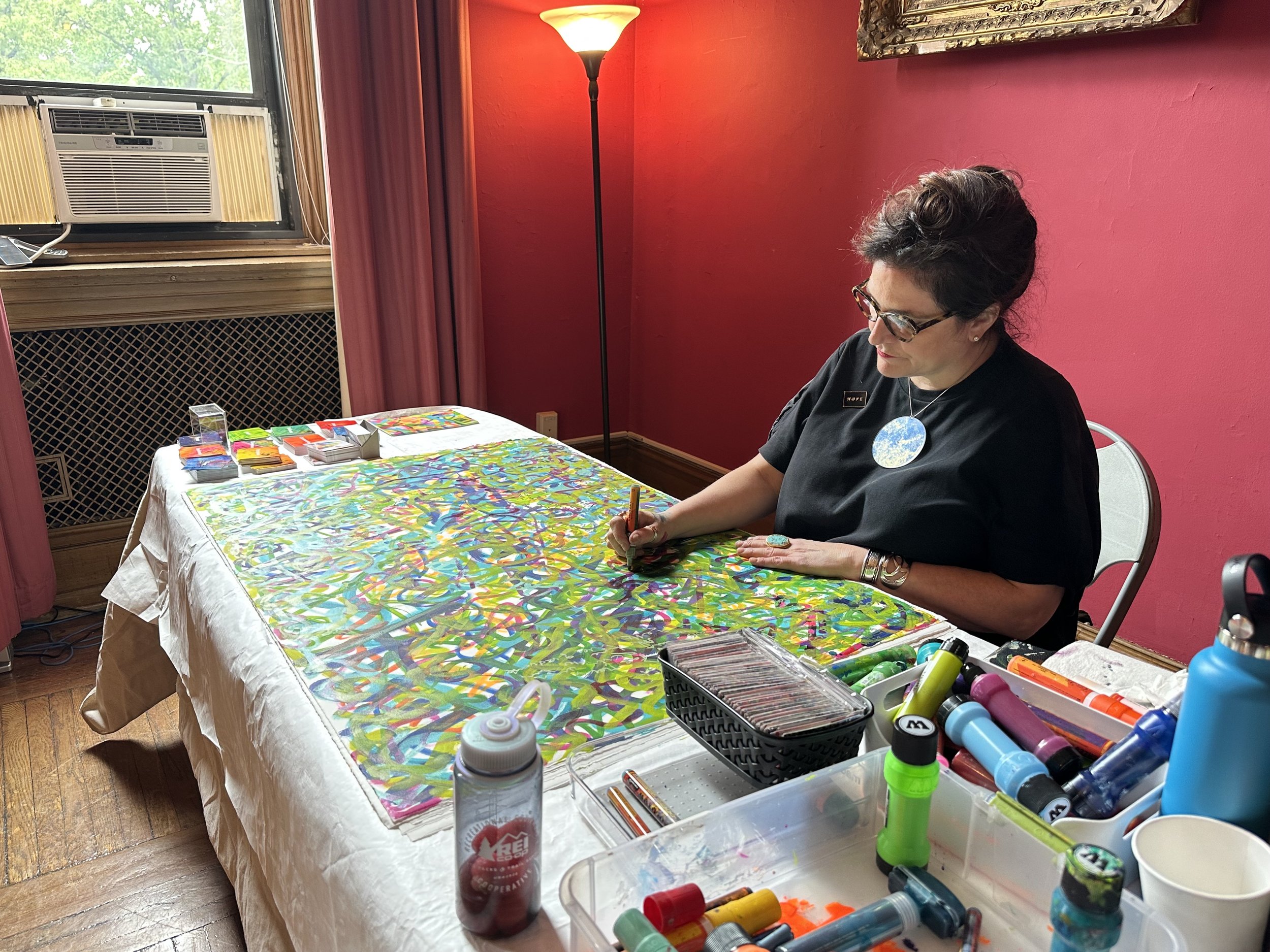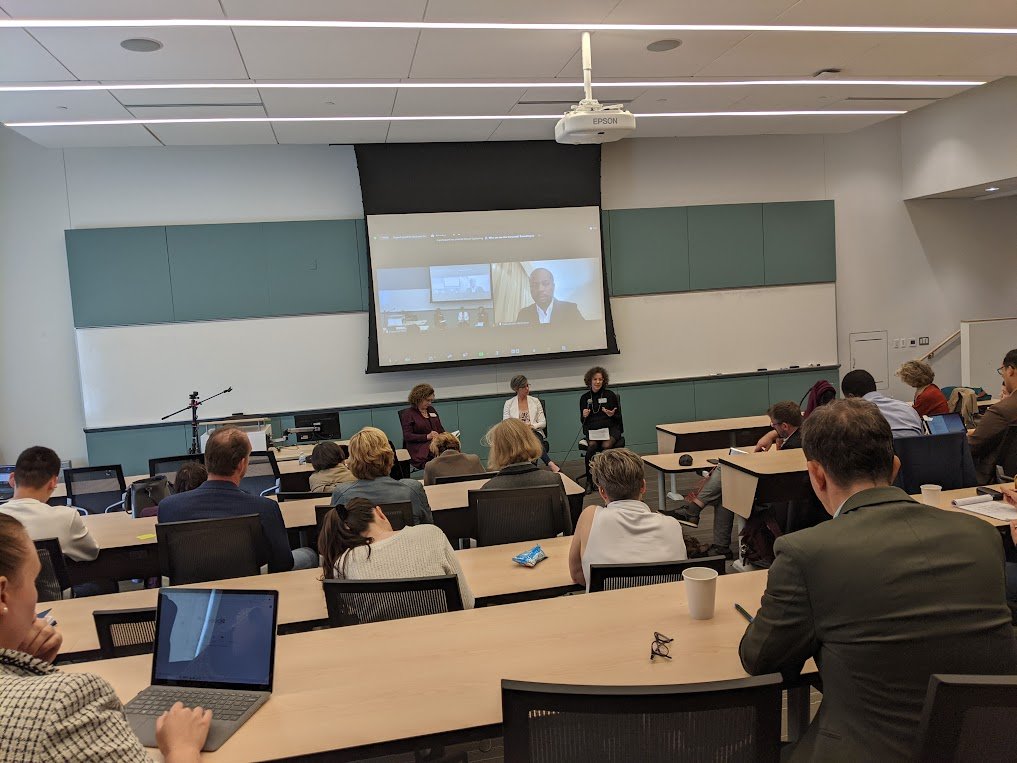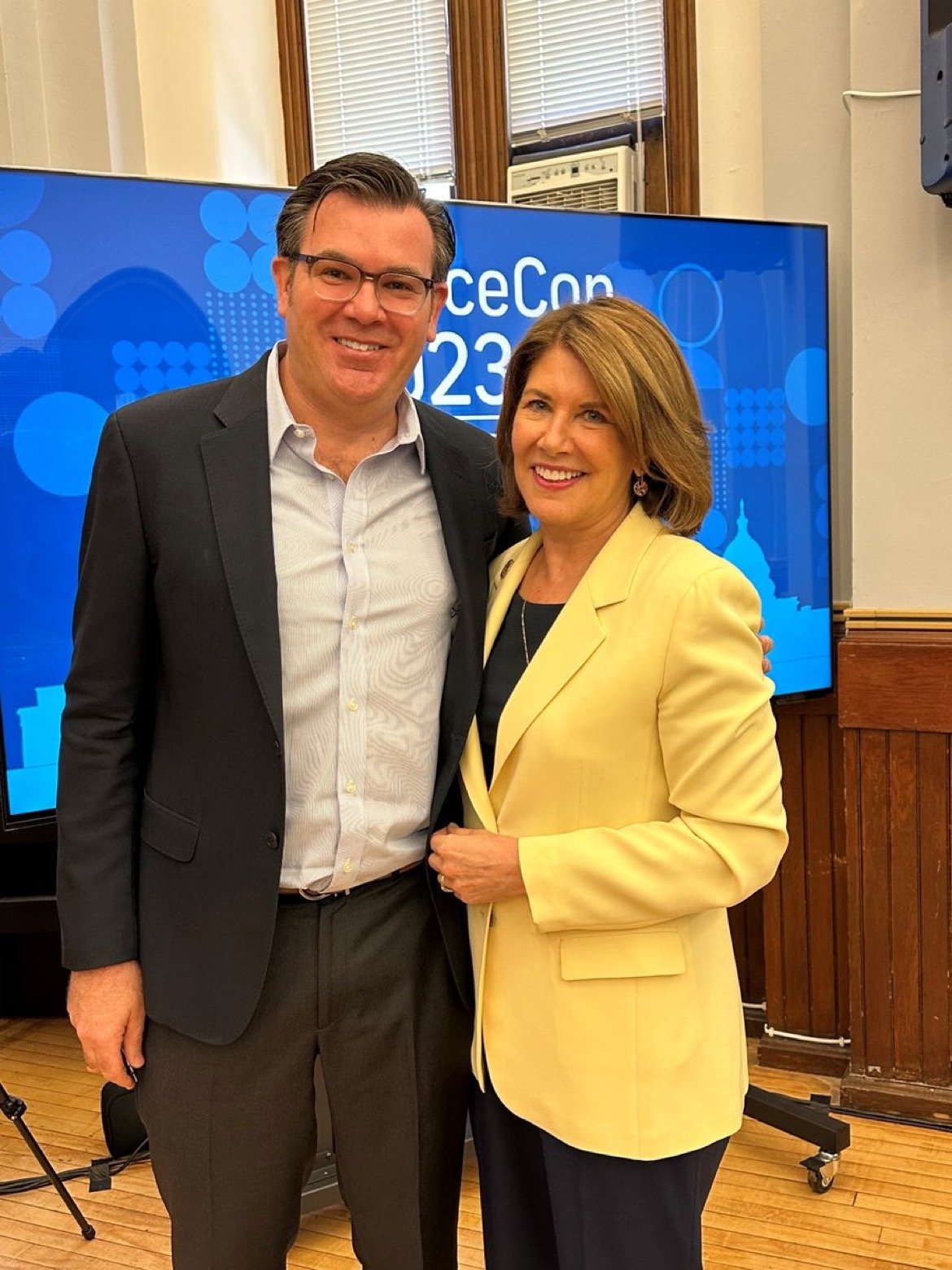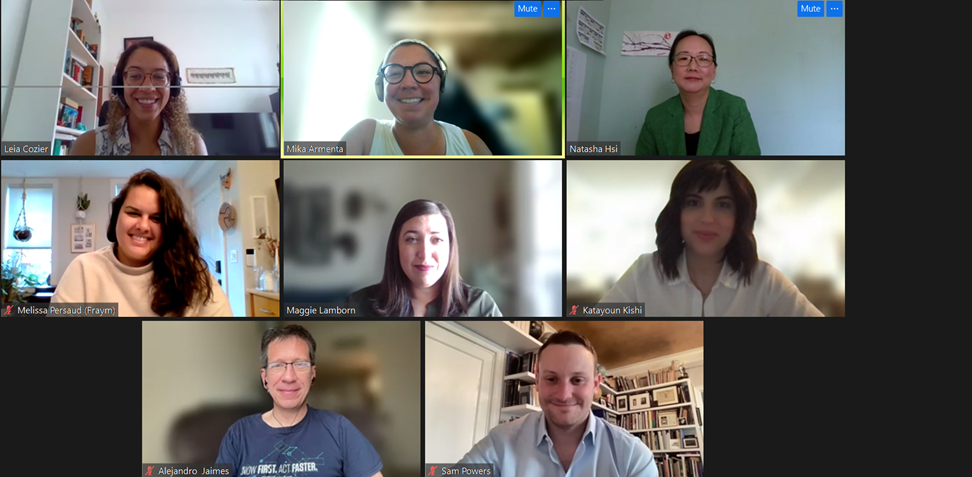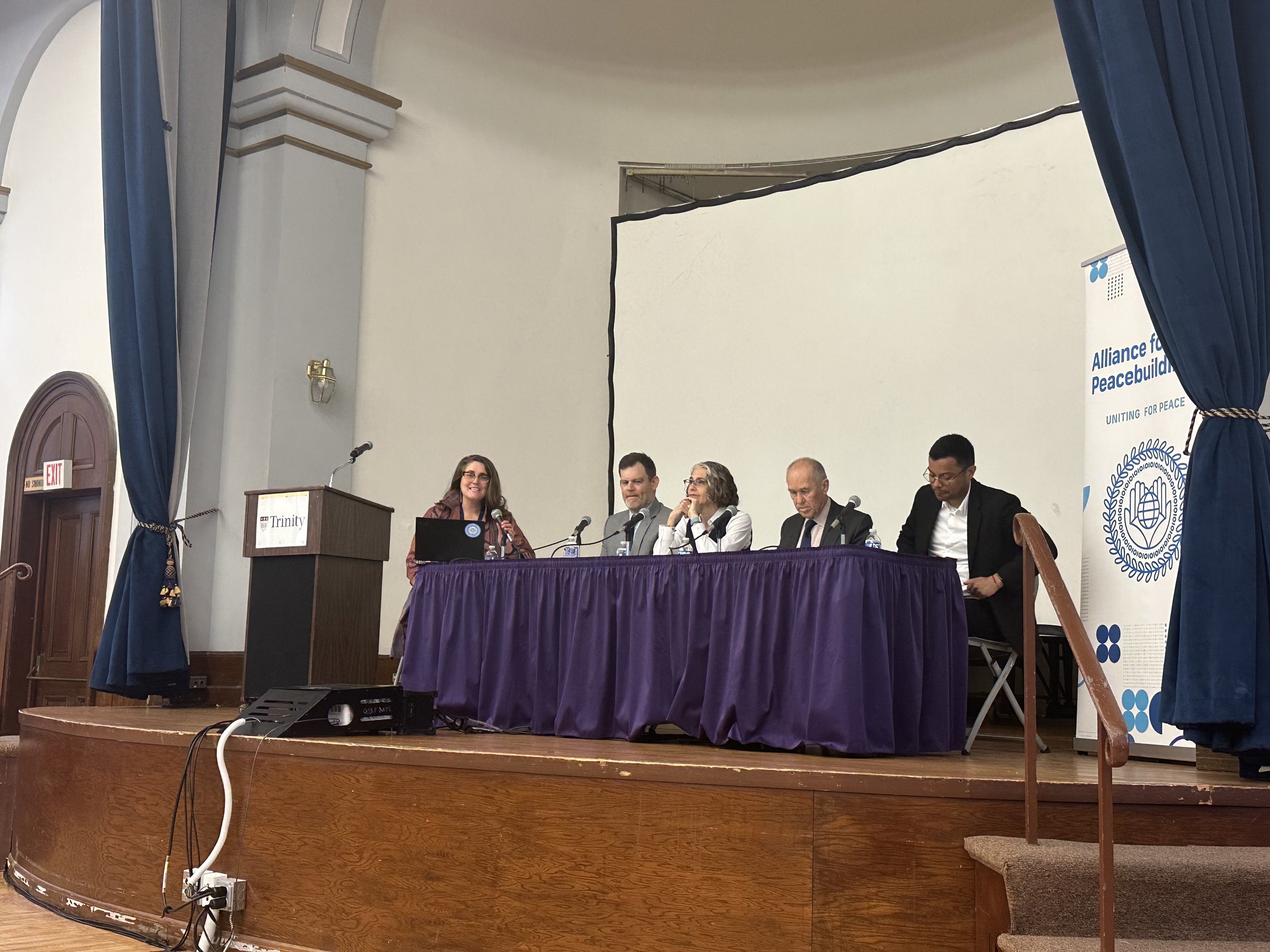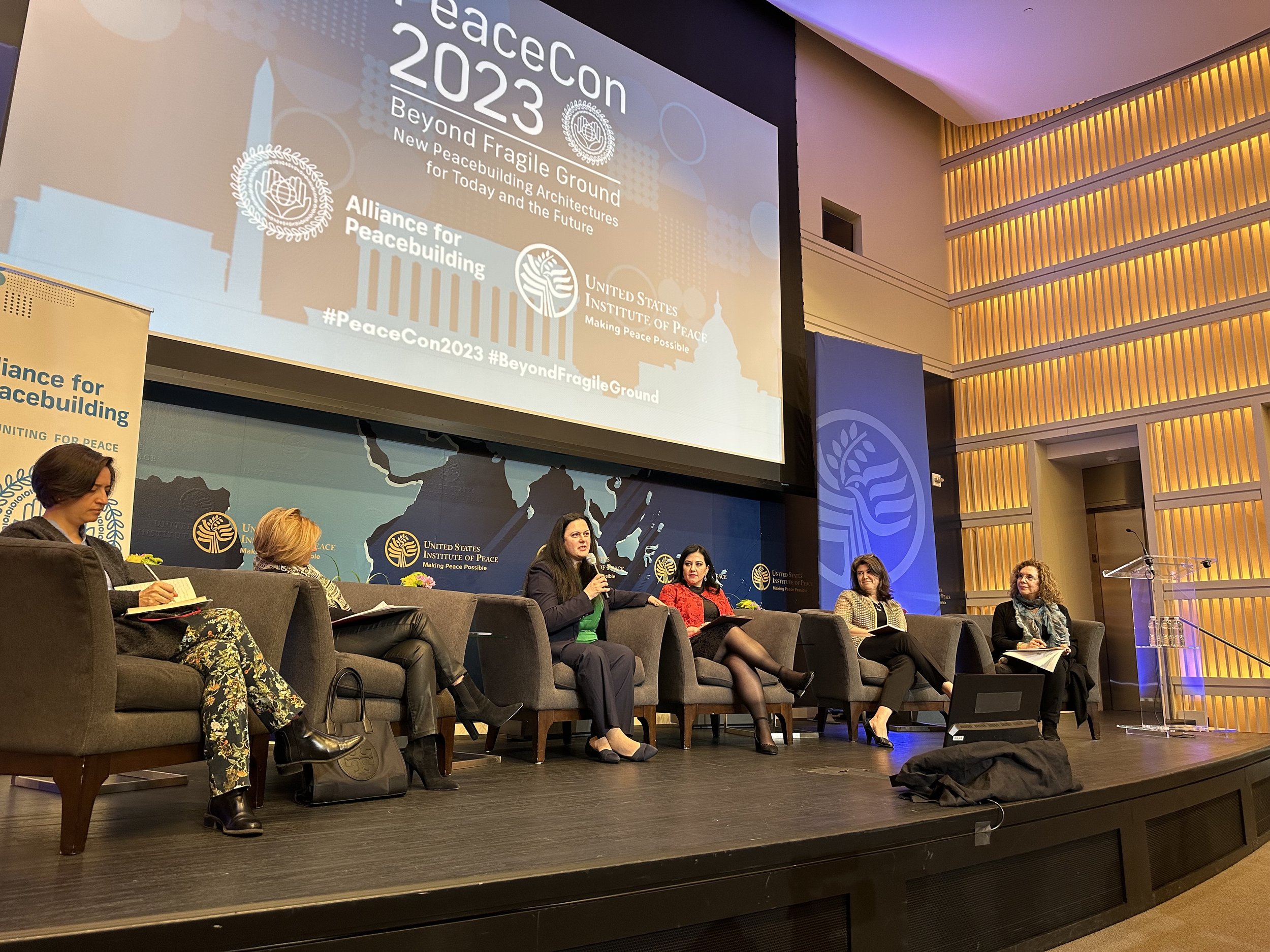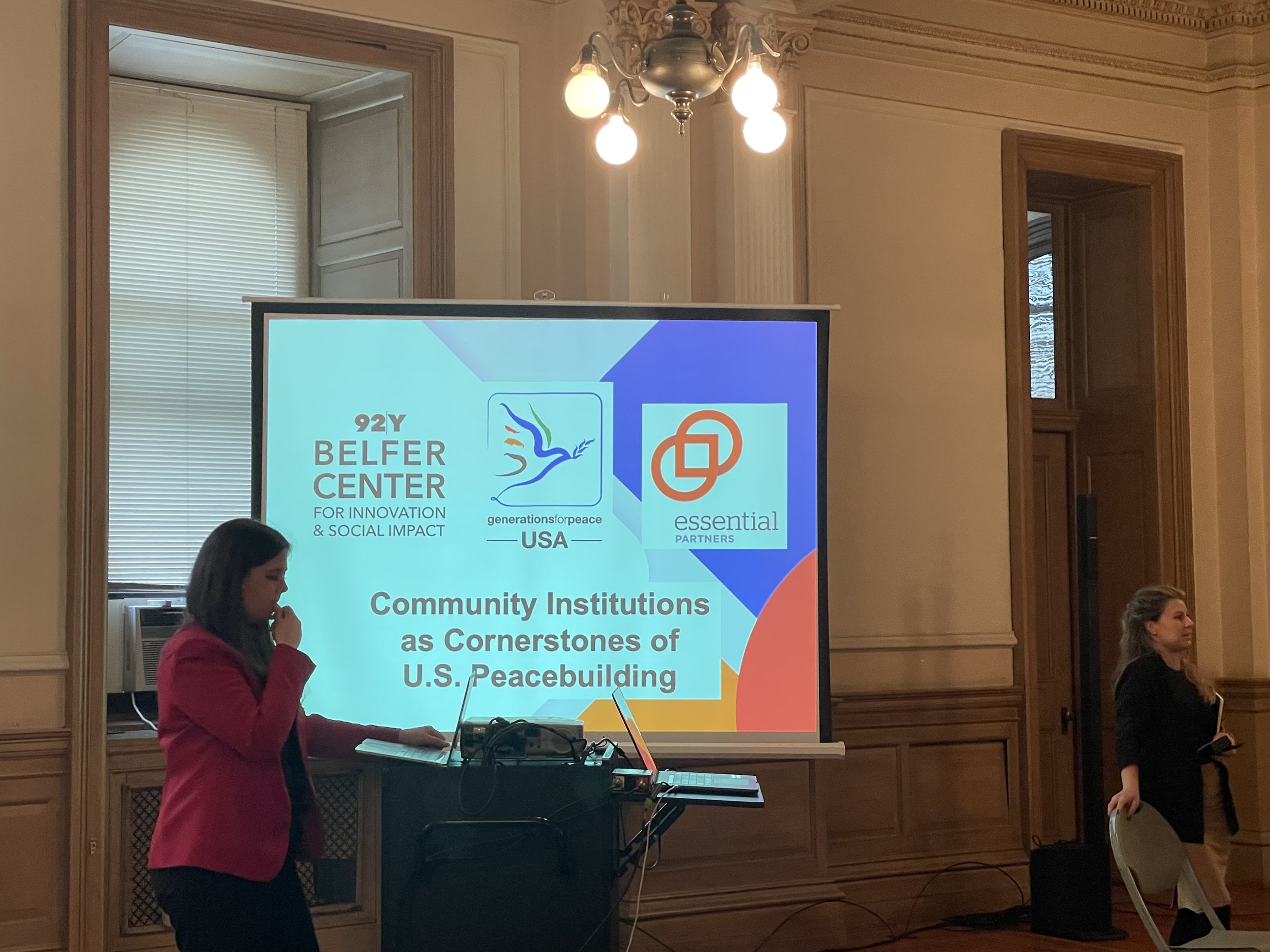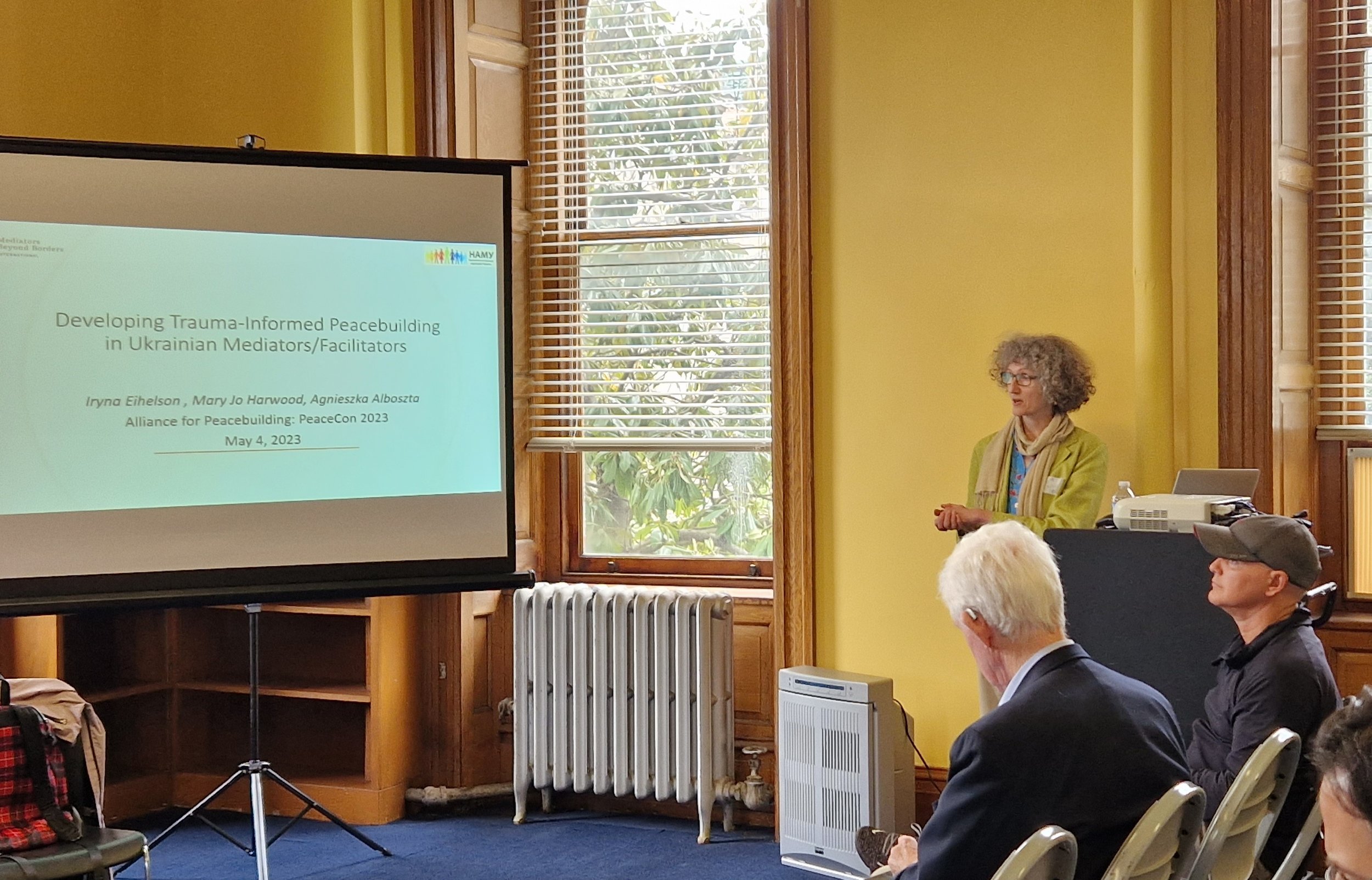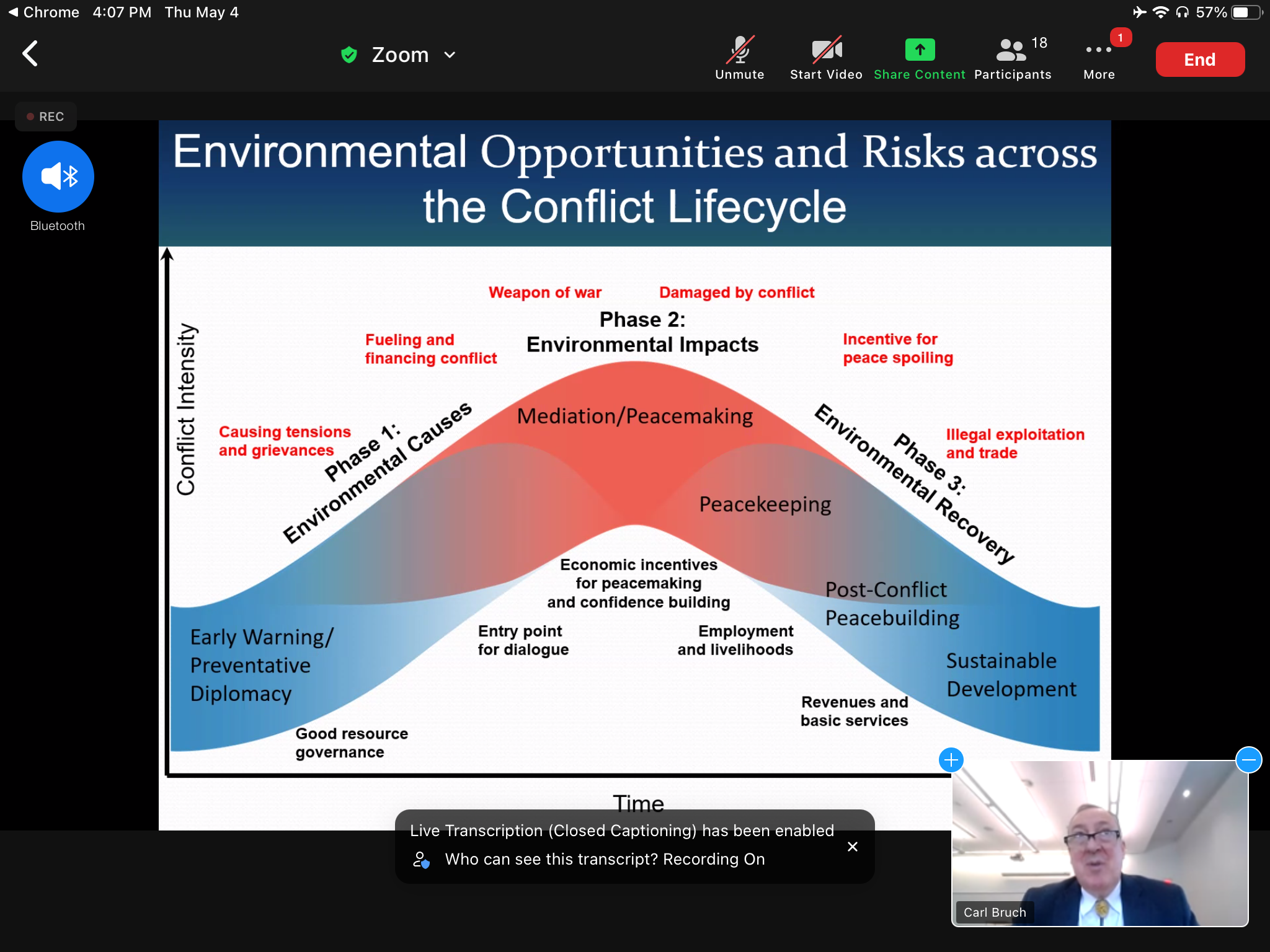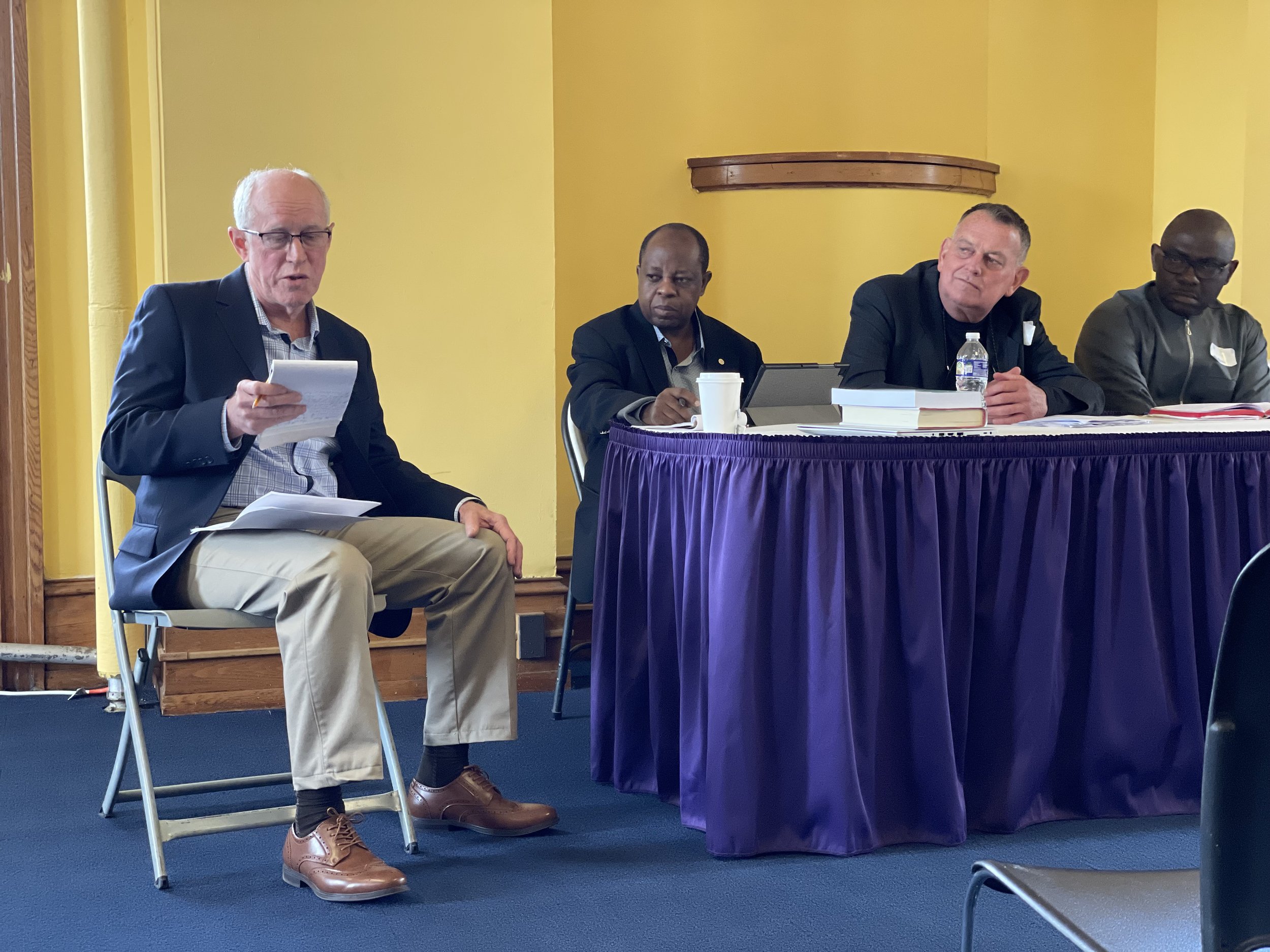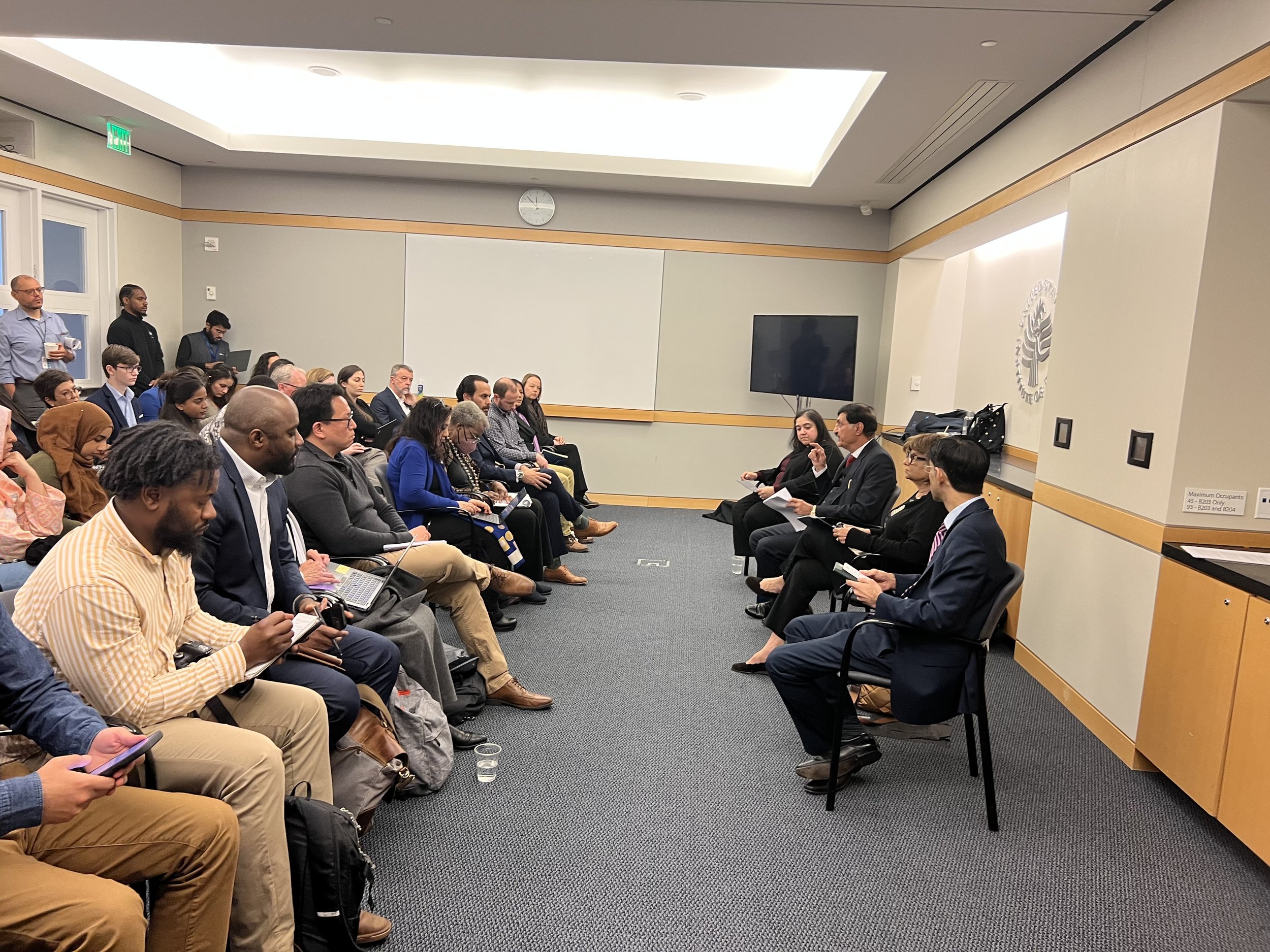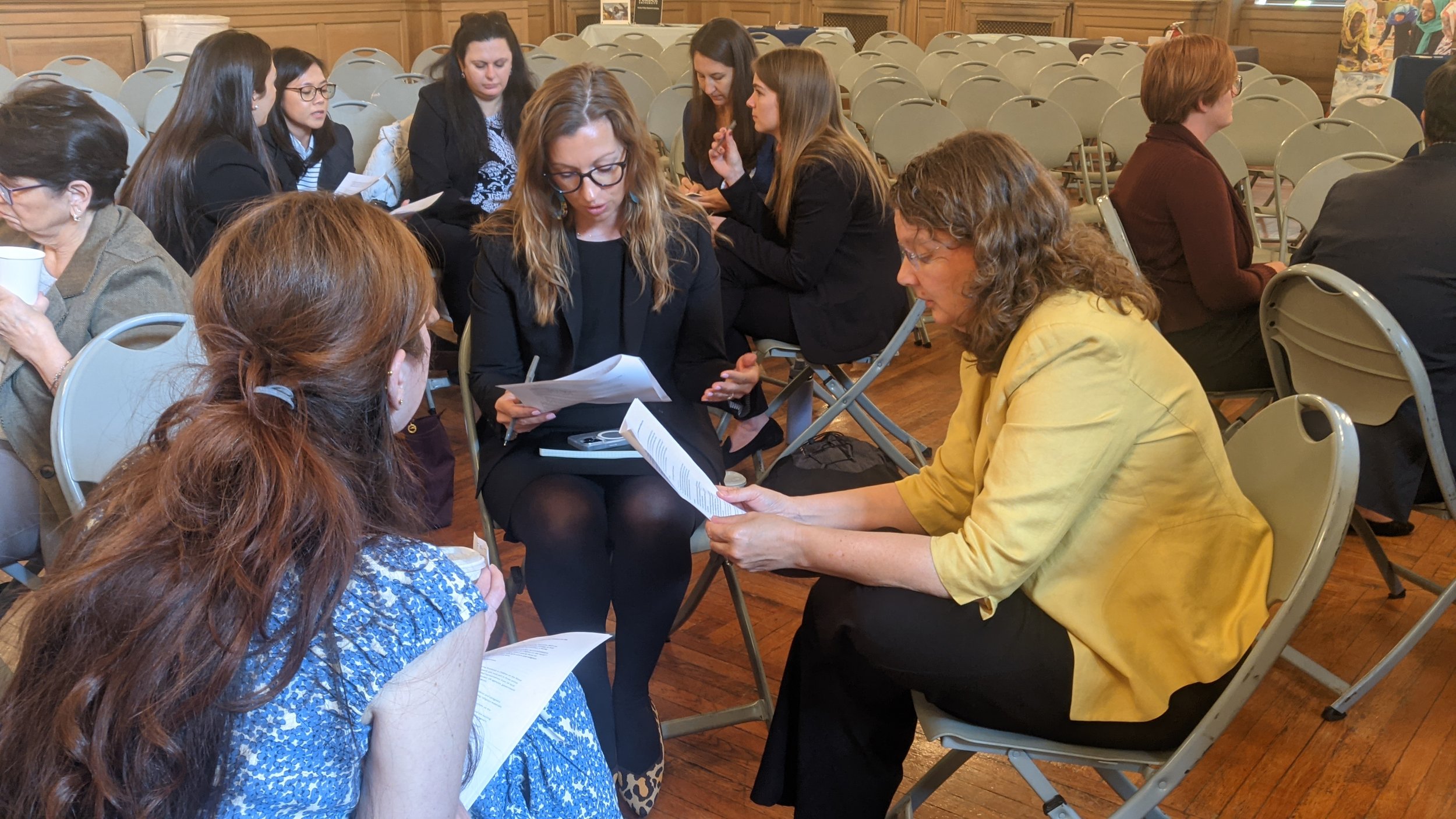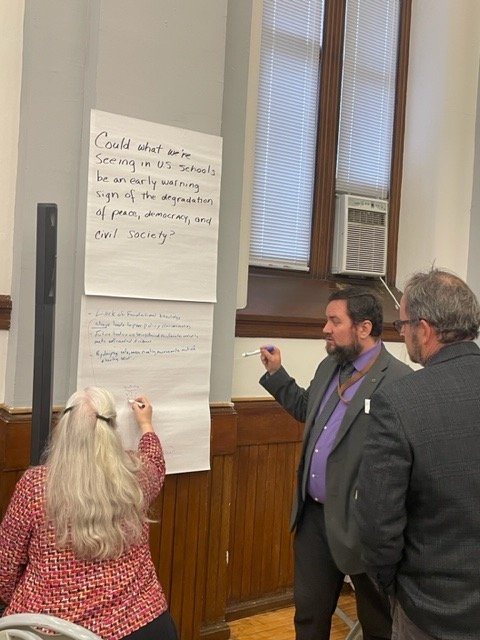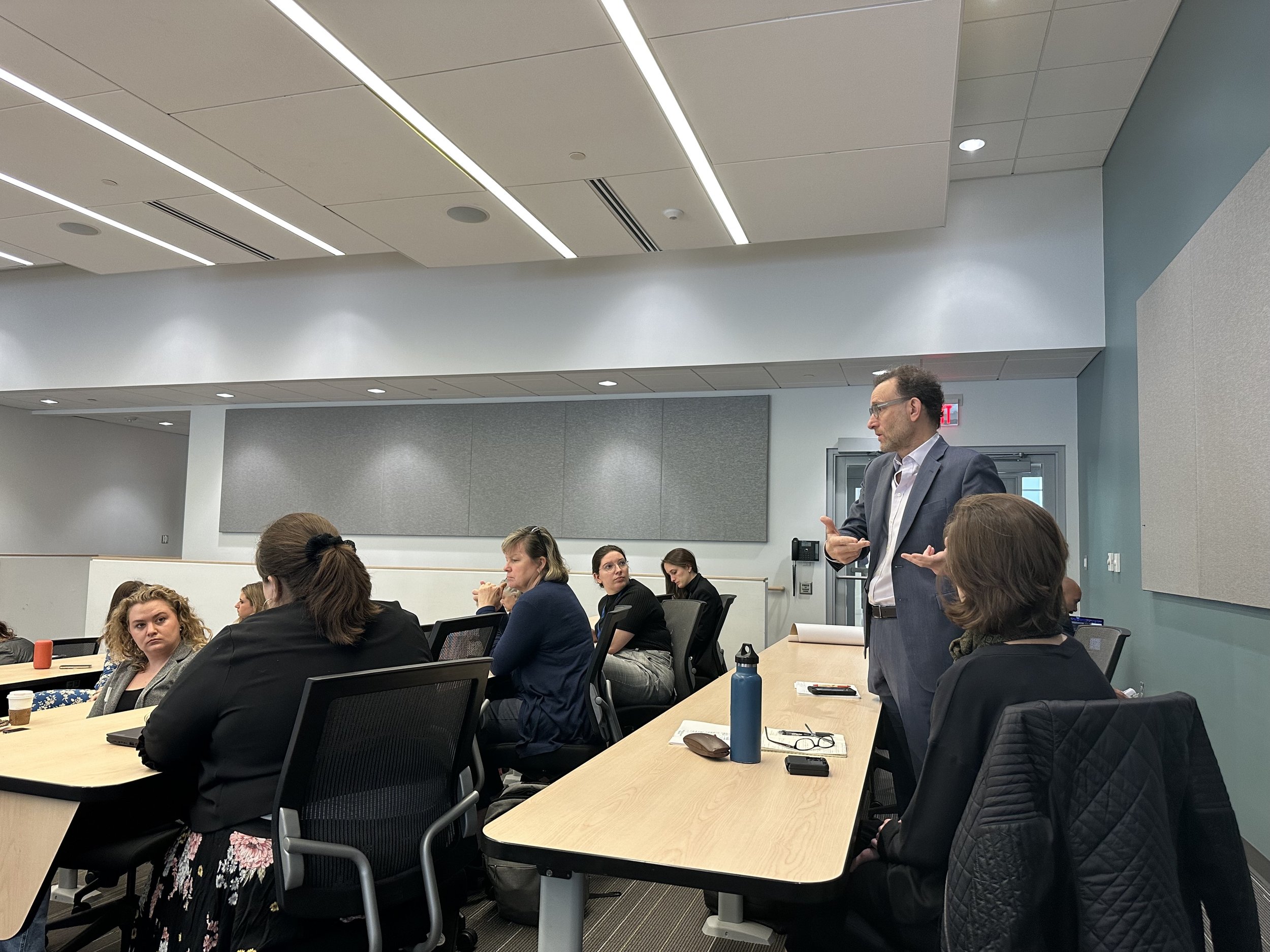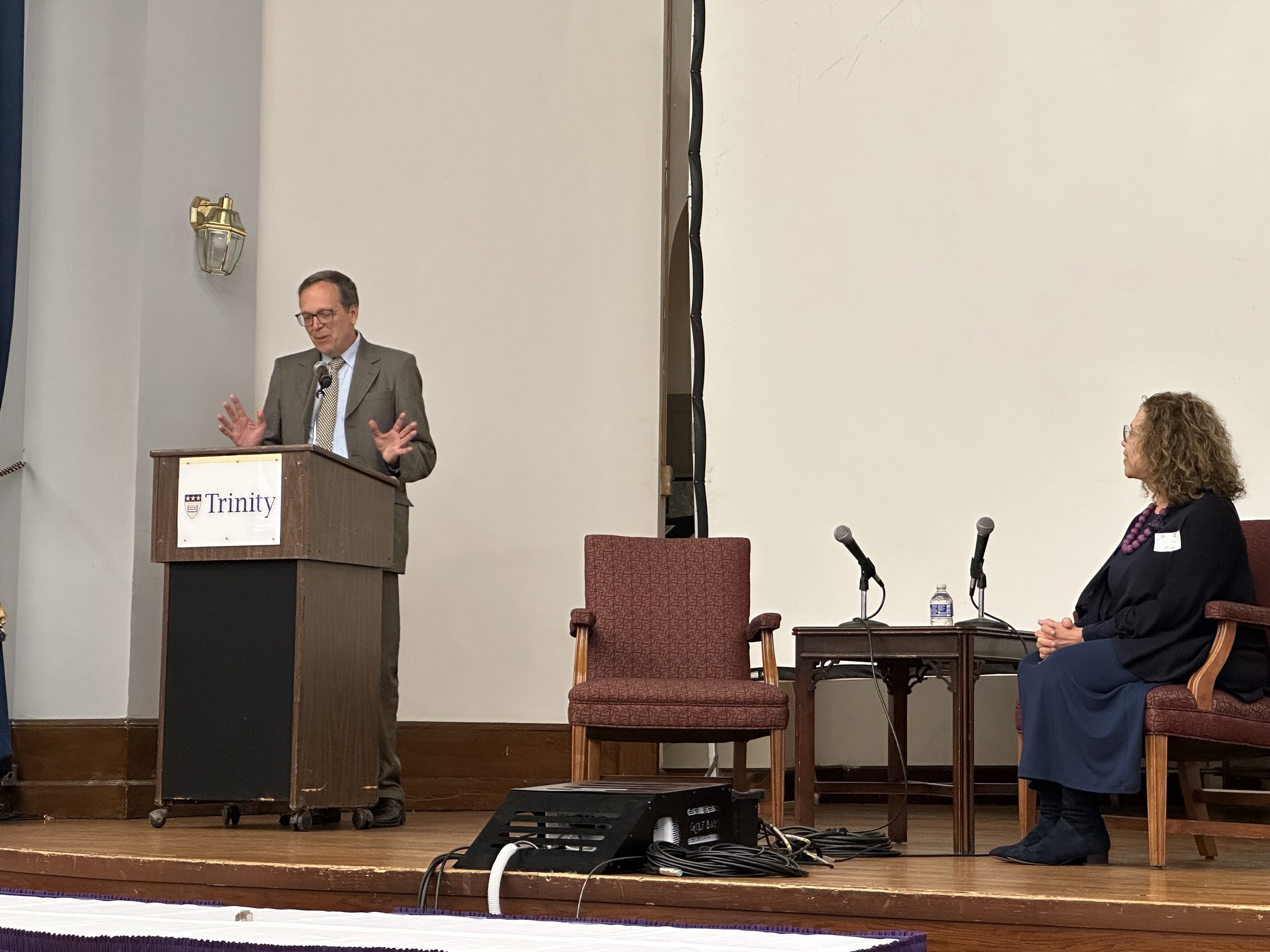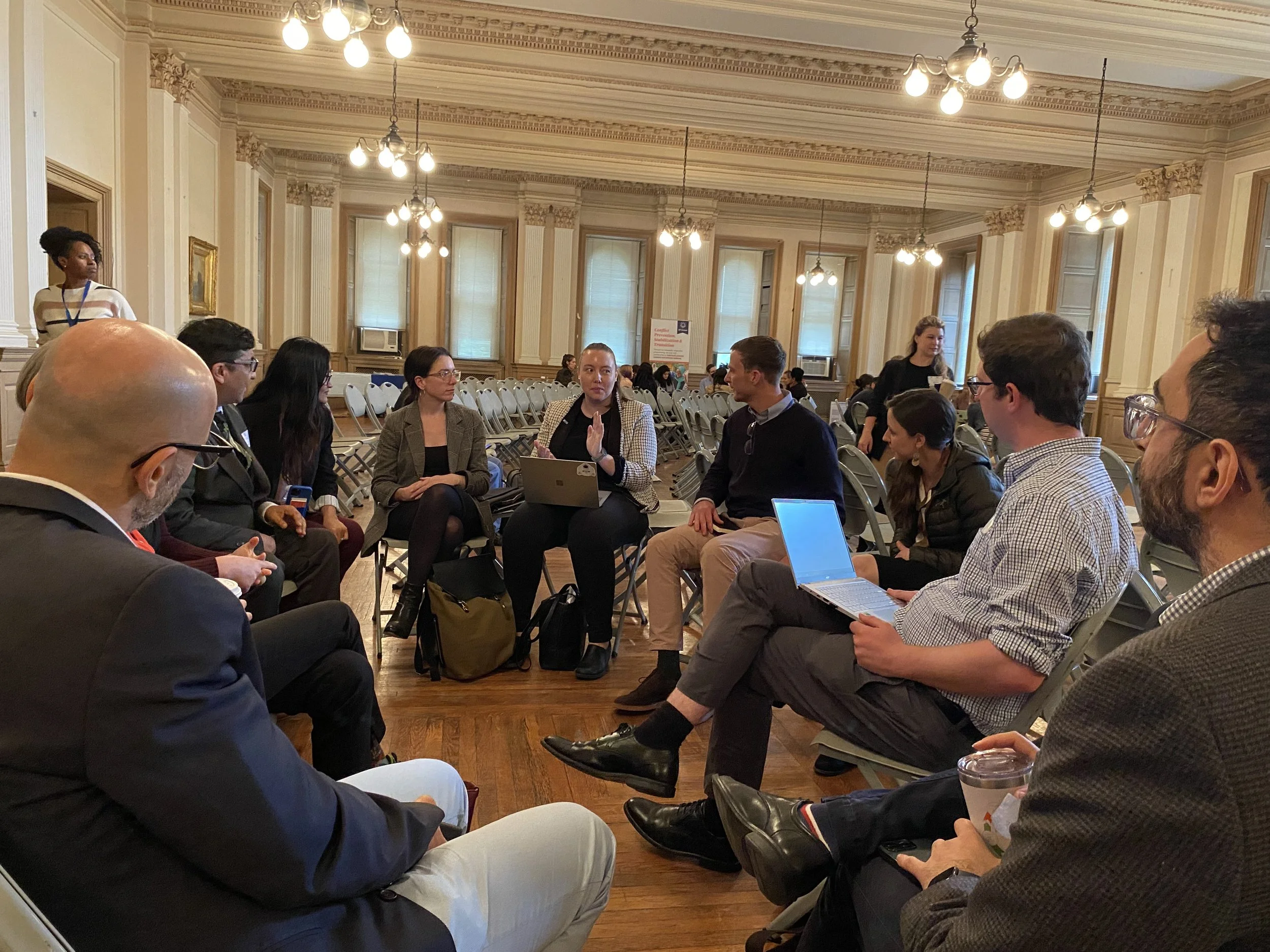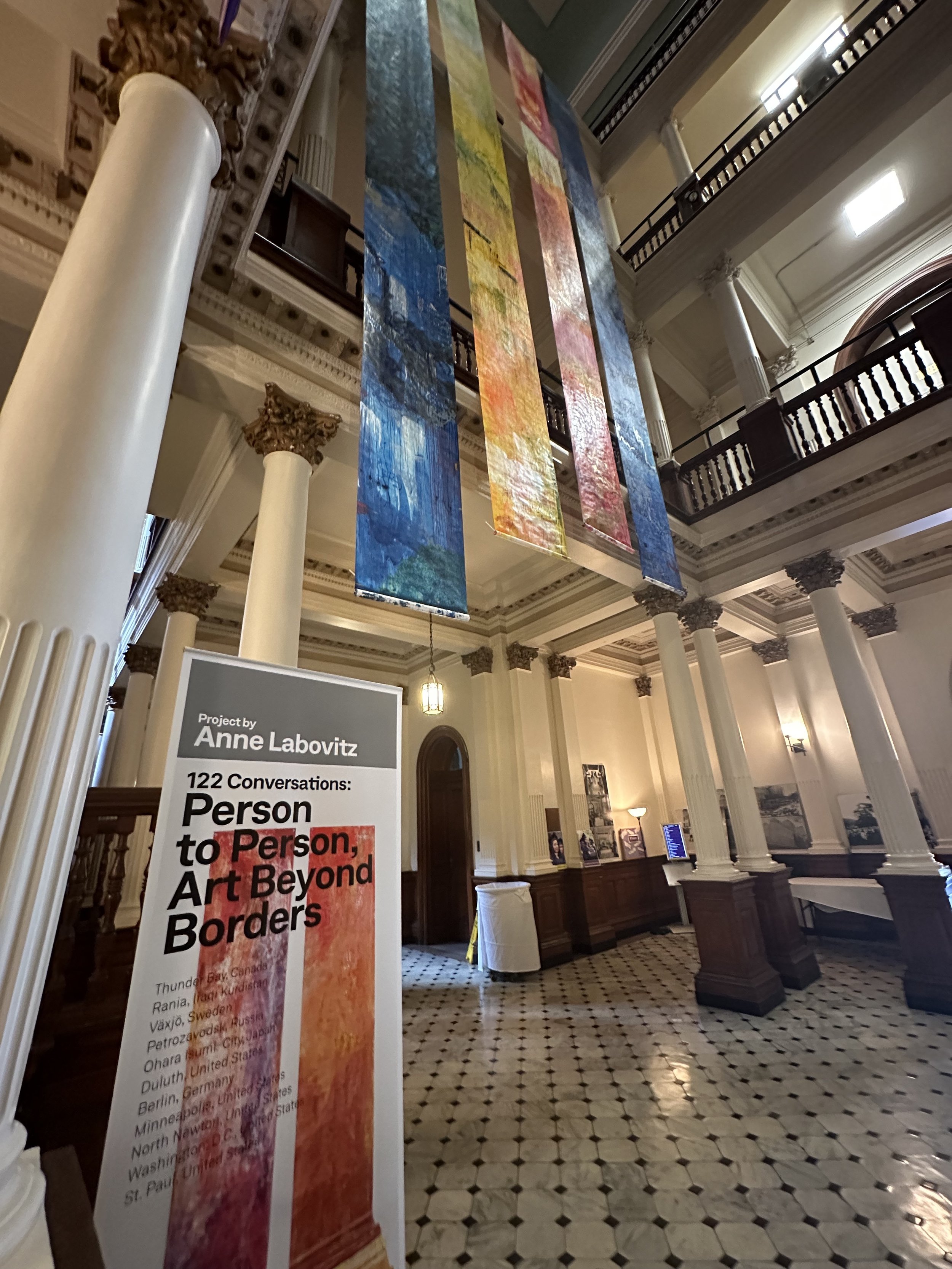PeaceCon is not just any conference.
It’s a gathering of change-makers and problem solvers from around the world coming together to build and advance the peacebuilding field by showcasing innovative new programs and evidence-based learning.
Every day, the Alliance for Peacebuilding (AfP) convenes the peacebuilding field to break down sectoral silos, forge new partnerships with policymakers and donors, and put peace at the forefront of public discourse. These efforts culminate every year at PeaceCon, AfP's annual idea and action forum, hosted in partnership with the United States Institute of Peace. Now the largest global gathering of peacebuilders held in the United States, PeaceCon attracts a diverse spectrum of government, civil society, and private sector leaders united in purpose.
Learn more about our most recent conference, PeaceCon 2024:
Status Quo No More: Building Peace in the Time of Rising Violent Conflict
Past Conferences
-
PeaceCon 2024, Status Quo No More—Building Peace in the Time of Rising Violent Conflict
On September 10th - 12th, AfP and the U.S. Institute of Peace (USIP) held the 12th annual PeaceCon, the premier global gathering designed to address contemporary challenges in peacebuilding and conflict resolution. Taking place in hybrid format, the conference focused on the theme “Status Quo No More: Building Peace in a Time of Rising Violent Conflict,” bringing together senior officials, thought leaders, policymakers and practitioners from around the globe to explore and tackle the challenges facing the peacebuilding community.
-
Beyond Fragile Ground: New Peacebuilding Architectures for Today and the Future
PeaceCon 2023 brought us together during a time of incredible global turbulence. The peacebuilding field was grappling with an unprecedented number of crises, and we knew we had to push forward despite the complexity and uncertainty.
Our mission was clear: ensure that recent victories were robustly resourced and put into action to provide a sturdy groundwork for crafting better, long-lasting solutions to mounting fragility and conflict.
Extraordinary times demand extraordinary actions. The success we needed relied on how we tackled the unknown and embraced innovative approaches.
Learn more about PeaceCon 2023 here.
-
COVID, Climate, and Conflict: Rising to the Challenges of a Disrupted World
The 10-year anniversary of PeaceCon convened at a time when the impacts of the global COVID-19 pandemic were still felt across the world. Vulnerable communities in the Global South were left waiting for widespread access to vaccines, as promised deliveries failed to materialize. In other parts of the world, vaccine hesitancy grew due to disinformation, undermining the rollout efforts.
At the same time, the world grappled with the effects of climate change. Rising temperatures, a melting Arctic, worsening droughts and wildfires present a danger to human life and the future of our planet as climate impacts drive conflict and insecurity.
The pandemic, climate change, displacement, disinformation, and democratic setbacks were just a few disruptions the peacebuilding field faced, but peacebuilders rose to the occasion.
Learn more on PeaceCon@10 here.
-
Pandemics, Peace, and Justice: Shaping What Comes Next
PeaceCon 2020 tackled the challenges of a global pandemic, rising violence, and systemic injustice. Experts and practitioners came together to explore the crucial link between justice and peacebuilding, aiming to elevate peacebuilding in our quest for a fair, secure, and peaceful future post-COVID-19.
Violence and conflict were already surging worldwide, with countless lives under constant threat in multiple conflict zones. The pandemic exacerbated these issues, disrupting societies, fueling polarization, and intensifying distrust, repression, and extremism. Marginalized communities and people of color suffered the most, exposing deep-rooted inequalities.
PeaceCon 2020 seized the moment of these dual disruptions—the pandemic and the global call for racial equality—to reimagine the role of peace and justice in international policy and practice. Through discussions on the fusion of justice and peacebuilding, the conference aimed to generate innovative solutions for building more equitable, just, and peaceful societies during and beyond the pandemic.
Learn more about PeaceCon 2020 here.
-
Seizing the Moment for Peace in a Disrupted World
One of the biggest hurdles the peacebuilding field faces is the need to ensure accountability, inclusivity, and diversity. We must learn from both our triumphs and failures to push ourselves to new heights. The active participation of youth and the integration of global peace education is also essential for building sustainable peace.
Moreover, if we truly believed in the importance and effectiveness of our programs in reducing violence and fostering peace, we had to substantiate our impact.
PeaceCon 2019 prioritized advancing solutions, fostering open dialogue, and embracing practical approaches to understand conflict dynamics. Each session aimed to transcend problem exploration, presenting improved practices and delivering tangible learning outcomes.
Learn more about PeaceCon 2019 here.
-
The Power of Collective Action
2017 brought immense challenges to the peacebuilding community, as global violence escalated and fears of a nuclear conflict loomed. United Nations Secretary-General António Guterres issued “a red alert for our world,” while the Bulletin of Atomic Scientists has moved the hands of their Doomsday Clock thirty seconds closer to midnight. These mounting difficulties urged us in the peacebuilding field to reassess our methods and craft new, influential frameworks that foster collaboration and united efforts.
PeaceCon 2018 centered around the strength of collective action for peace. We celebrated innovative narratives and experimental initiatives in the peace and security domain, while exploring joint strategies for impactful programming and advocacy.
Learn more about PeaceCon 2018 here.
-
Peace Now More Than Ever
The landscape of war and peace has undergone significant shifts in recent years. The institutions that upheld peace among major powers for decades are now at risk of erosion. Global violence and conflict have surged, with war-torn regions like Syria and Yemen becoming complex battlegrounds for proxy fights. International humanitarian laws have weakened, leading to attacks on civilians, hospitals, and aid convoys without consequences. Famine looms, genocide threatens, and violent extremism persists as a stubborn security challenge. Fragile states grapple with governance crises and poverty. Refugee waves from Central America to Syria have fueled political divisions, humanitarian emergencies, and the rise of populist leaders. PeaceCon 2017 provided a powerful platform for exploring both the challenges and the bright spots facing our field.
-
Next Gen Peace: Advance. Expand. Influence.
The 2015 Global Peace Index warned of rising violence worldwide, with conflict costs estimated at $43 trillion. Unprecedented chaos, extremism, Ebola, gun violence, and civil unrest dominated headlines. The peacebuilding field responded with innovative approaches, drawing from various disciplines to forge new frameworks for positive peace.
PeaceCon 2016 united members with the wider peace and security community, including funders, policymakers, military personnel, and professionals from diverse fields. It offered a vibrant platform for networking, exchanging ideas, and addressing crucial issues in peacebuilding. The conference celebrated achievements, while shaping the future direction of the field through collaborative projects and reflection on global crises.
PeaceCon 2023:
At a glance
Peacebuilding Awards
Every year at PeaceCon, the Alliance for Peacebuilding recognizes individuals and organizations that make positive peace contributions to address worsening conflict dynamics and cross divides to build peace both in the U.S. and internationally.
Peacebuilding Champion Award
Local Peacebuilder Award
Melanie Greenberg Award


